Metabolism

Serine/threonine kinase AMPK upregulates glucose uptake by promoting the expression and function of glucose transporters. AMPK is activated by increased AMP/ATP ratio, resulting from cellular and environmental stress, e.g. low glucose, heat shock, hypoxia and ischemia. AMPK activation positively modulates signaling transductions that refill ATP levels. Moreover, it also stimulates catabolic processes such as fatty acid oxidation and glycolysis through inhibition of ACC and activation of PFK2. AMPK negatively regulates various proteins which are important to ATP-consuming mechanisms, e.g. mTORC2, glycogen synthase, SREBP-1, and TSC2, causing the downregulation/inhibition of gluconeogenesis and glycogen, lipid and protein synthesis.
-
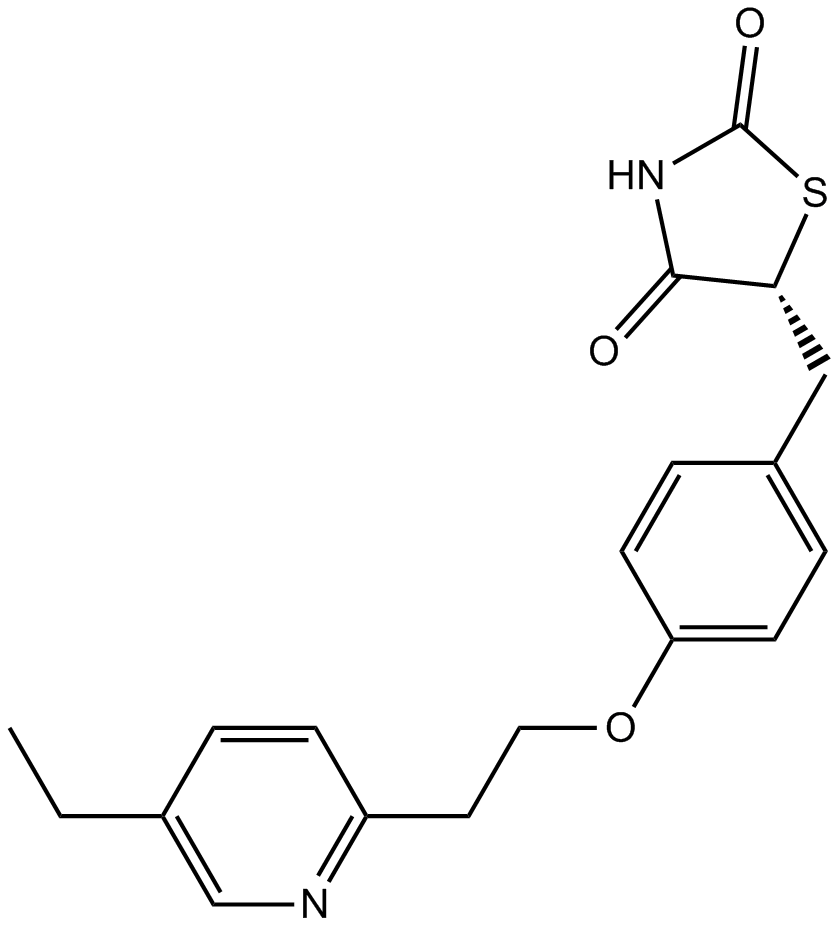 B2117 PioglitazoneSummary: PPAR agonist
B2117 PioglitazoneSummary: PPAR agonist -
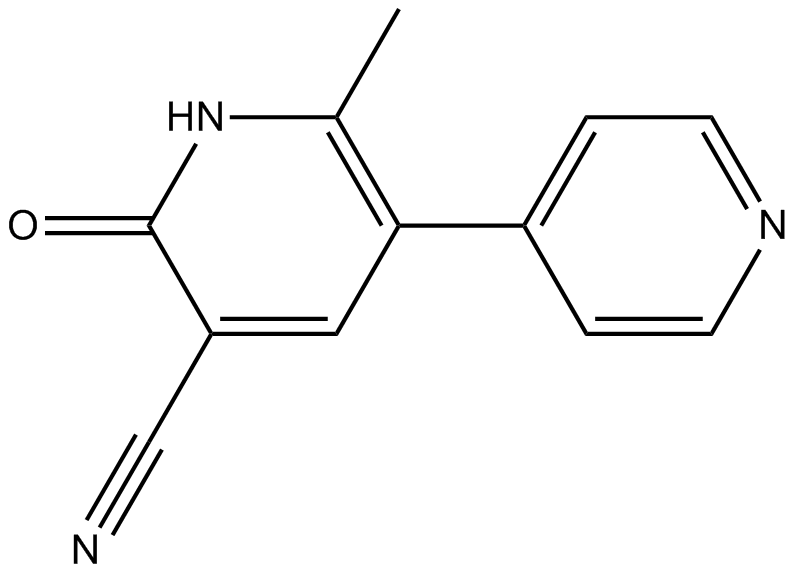 B1386 MilrinoneTarget: Phosphodiesterases (PDEs)Summary: PDE-3 inhibitor
B1386 MilrinoneTarget: Phosphodiesterases (PDEs)Summary: PDE-3 inhibitor -
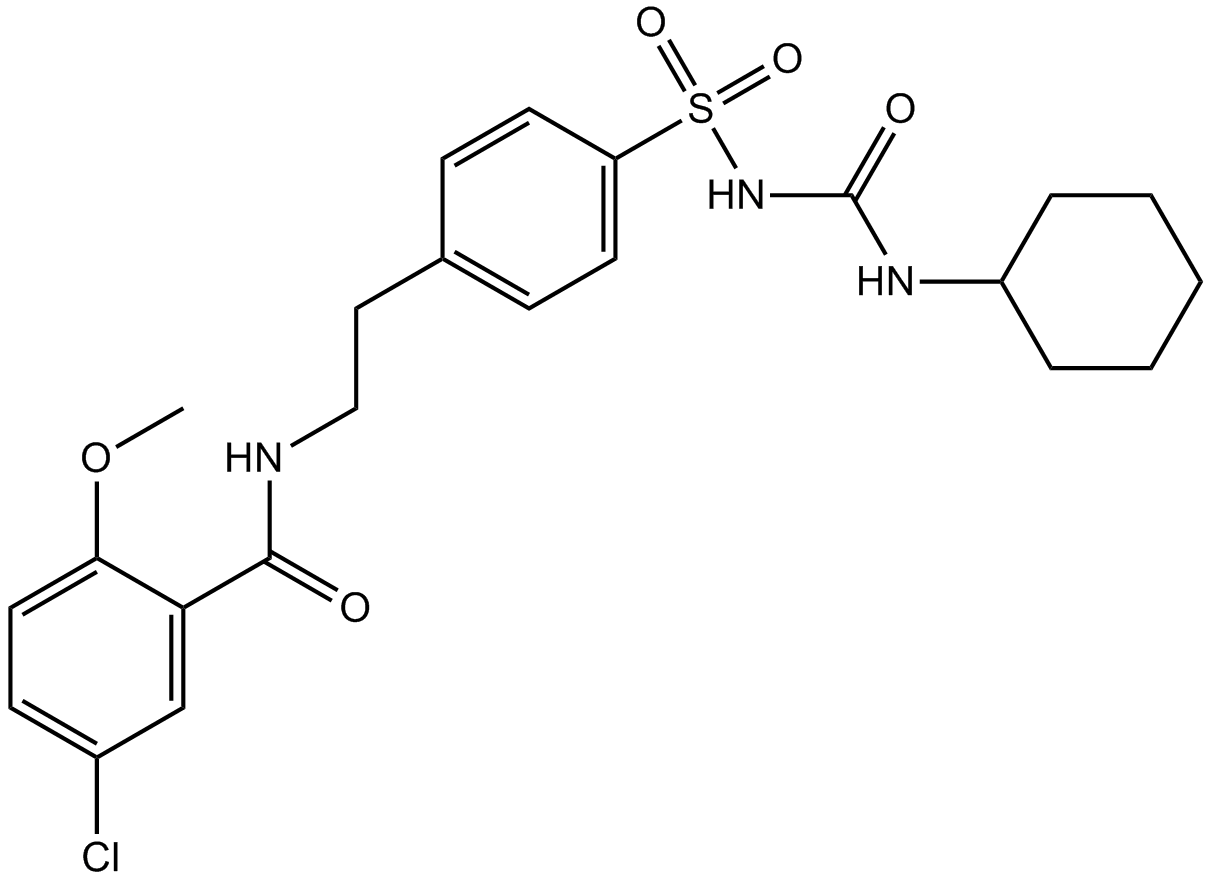 B1296 GlibenclamideTarget: Inward Rectifier Potassium (Kir) ChannelsSummary: Insulin production modulator
B1296 GlibenclamideTarget: Inward Rectifier Potassium (Kir) ChannelsSummary: Insulin production modulator -
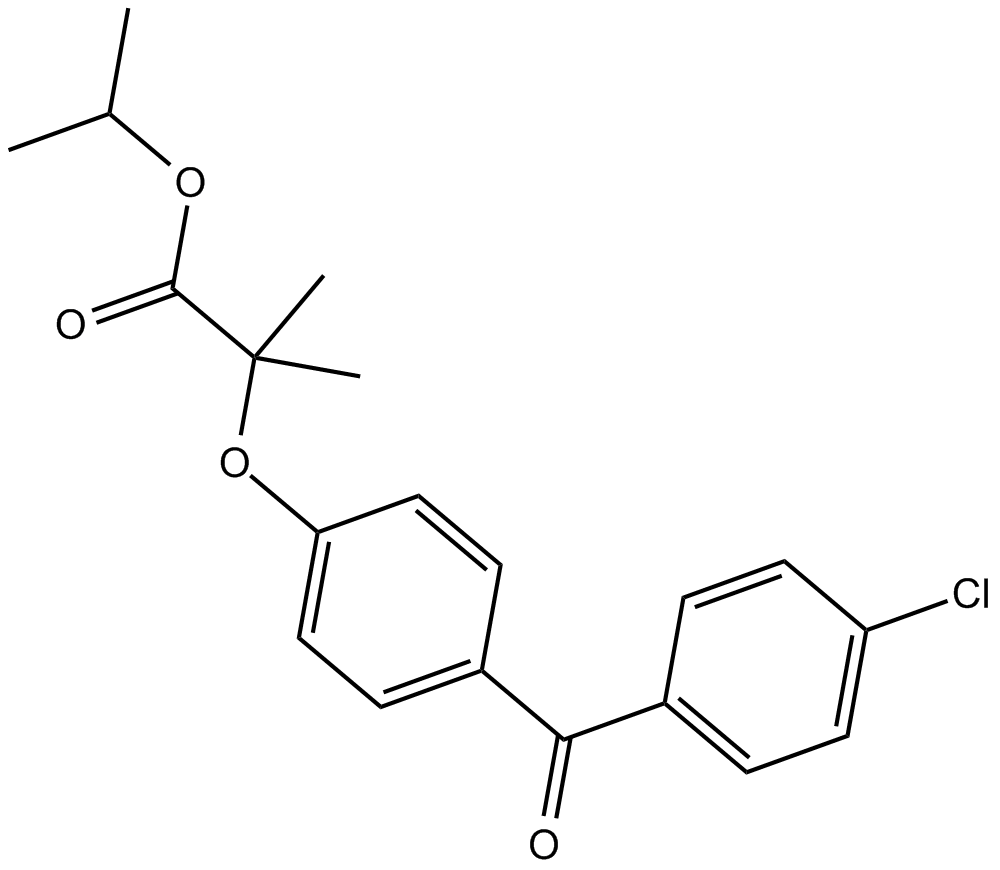 B1943 Fenofibrate1 CitationSummary: PPARα agonist
B1943 Fenofibrate1 CitationSummary: PPARα agonist -
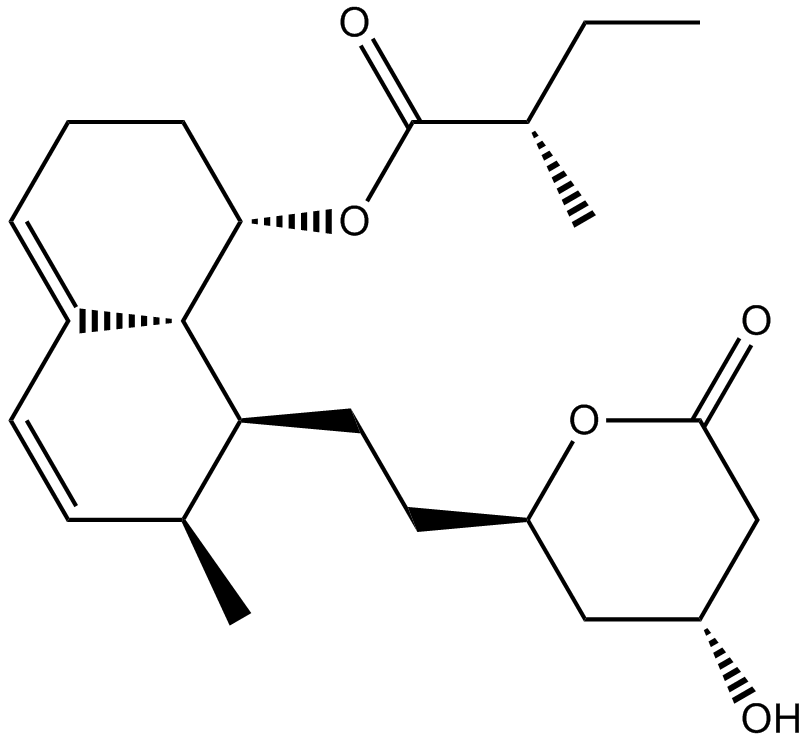 B1788 MevastatinTarget: HMG-CoA ReductasesSummary: HMG-CoA reductase inhibitor
B1788 MevastatinTarget: HMG-CoA ReductasesSummary: HMG-CoA reductase inhibitor -
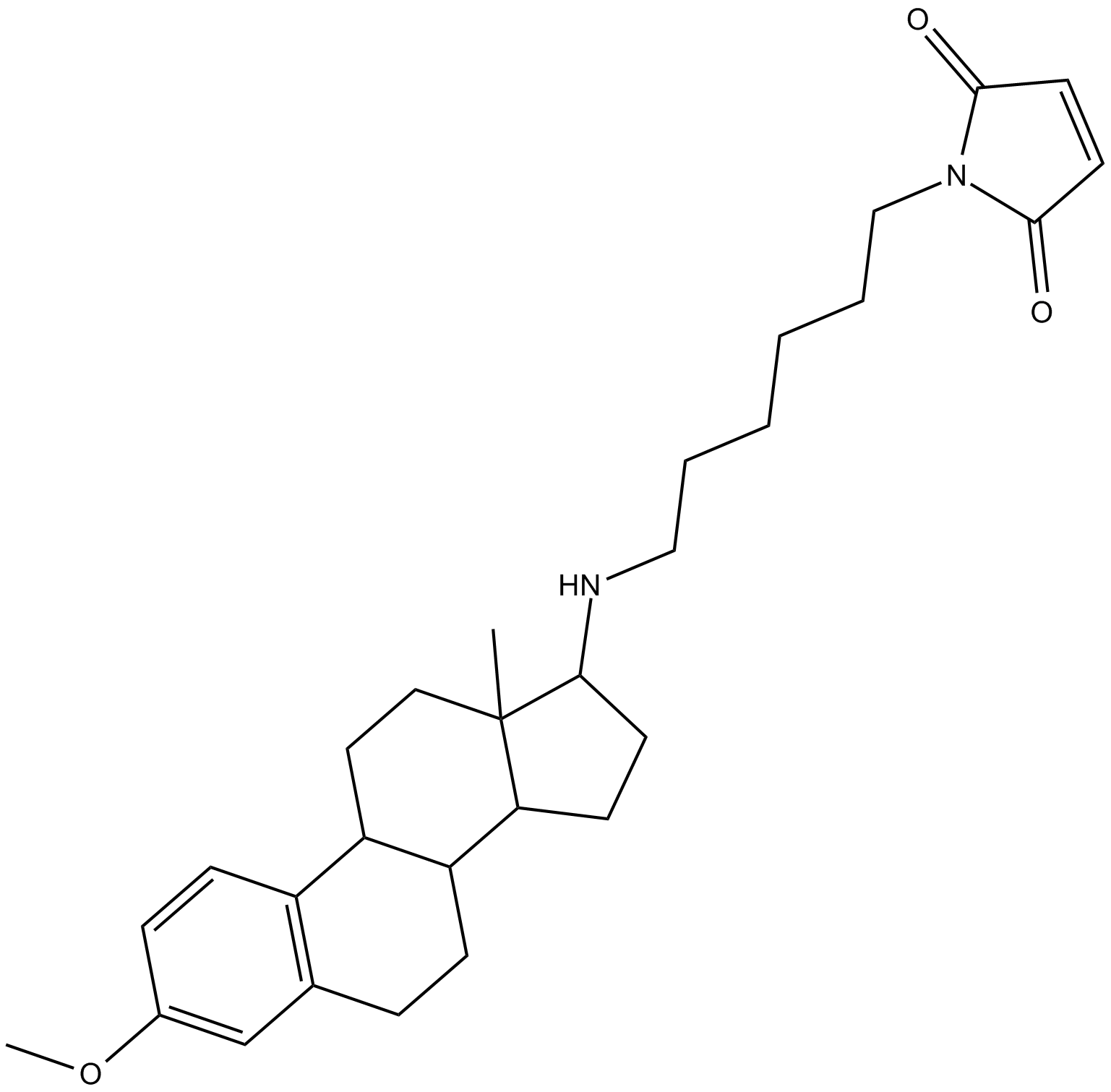 B3422 U-731221 CitationTarget: PC-PLCSummary: inhibitor of phospholipase C, phospholipase A2, and 5-LO (5-lipoxygenase)
B3422 U-731221 CitationTarget: PC-PLCSummary: inhibitor of phospholipase C, phospholipase A2, and 5-LO (5-lipoxygenase) -
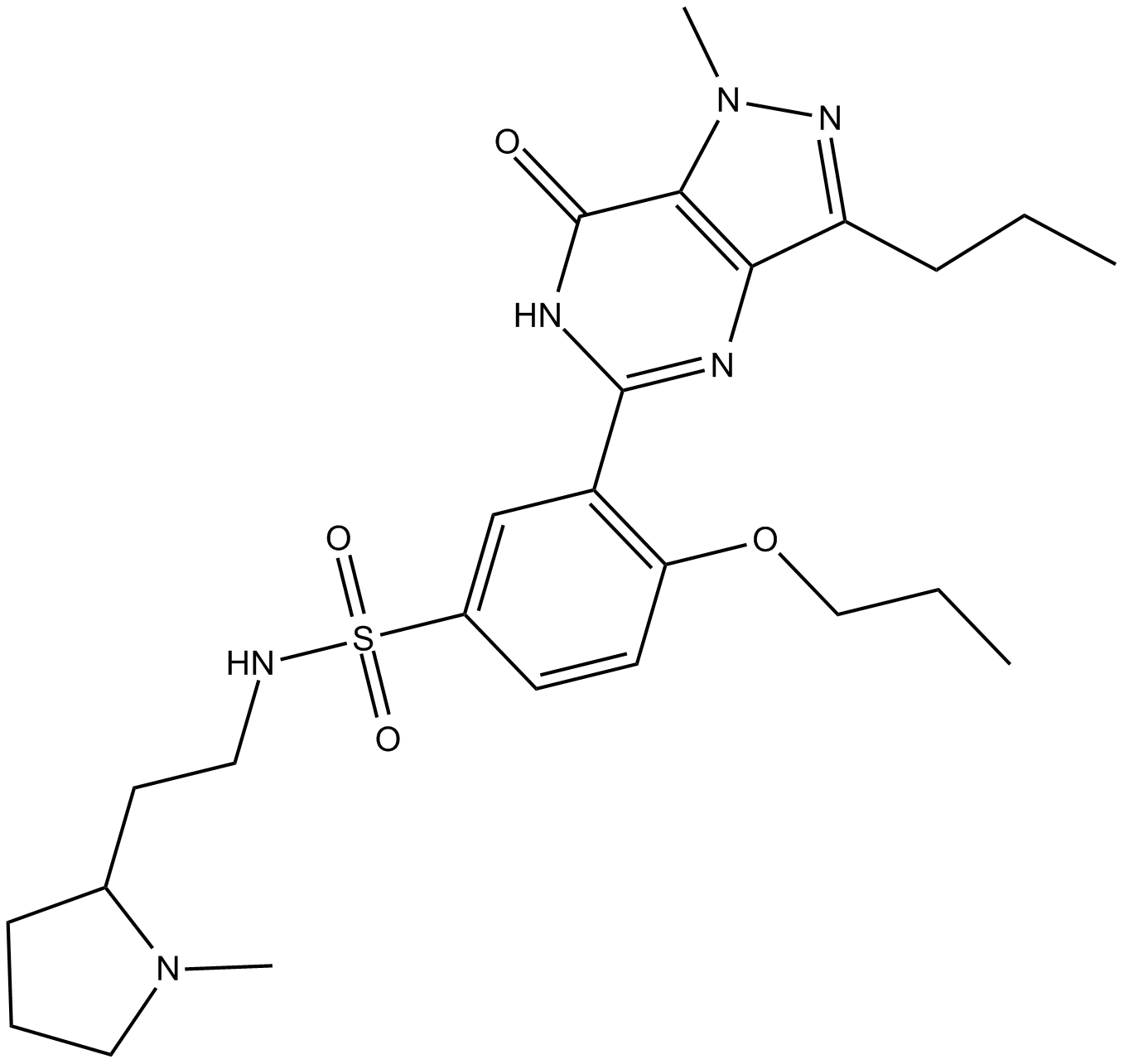 B3439 UdenafilTarget: Phosphodiesterases (PDEs)Summary: PDE5 inhibitor
B3439 UdenafilTarget: Phosphodiesterases (PDEs)Summary: PDE5 inhibitor -
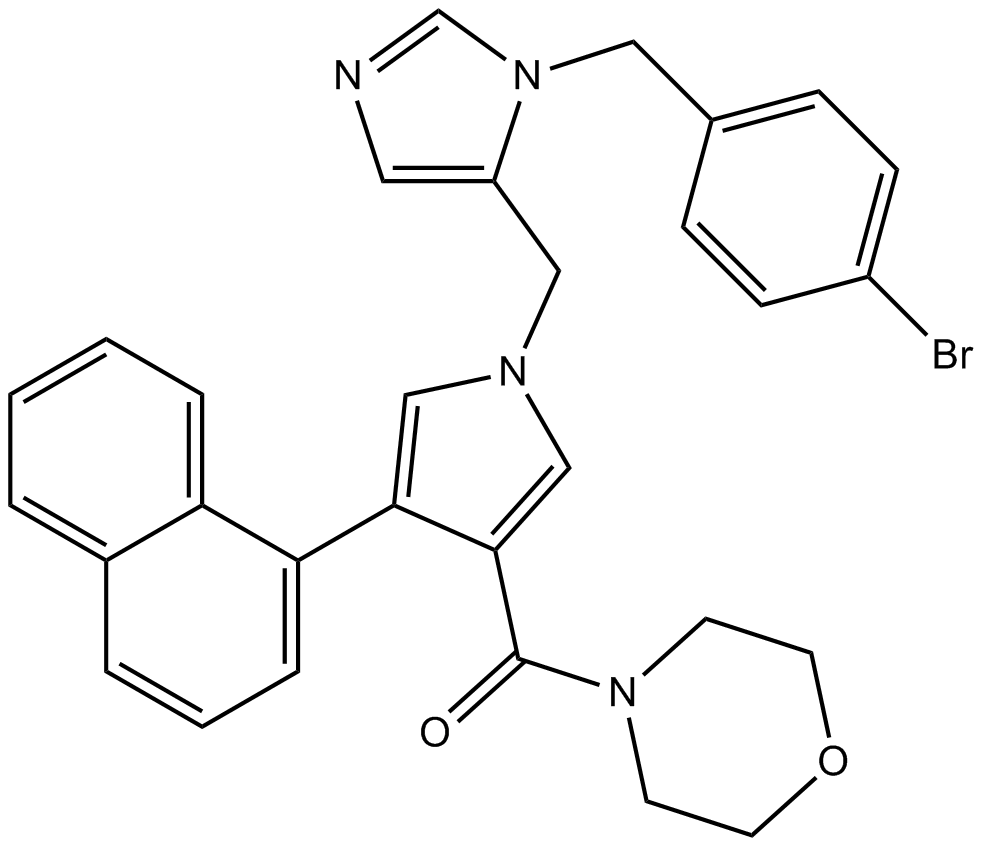 B3703 LB42708Target: FtaseSummary: Selective FTase inhibitor
B3703 LB42708Target: FtaseSummary: Selective FTase inhibitor -
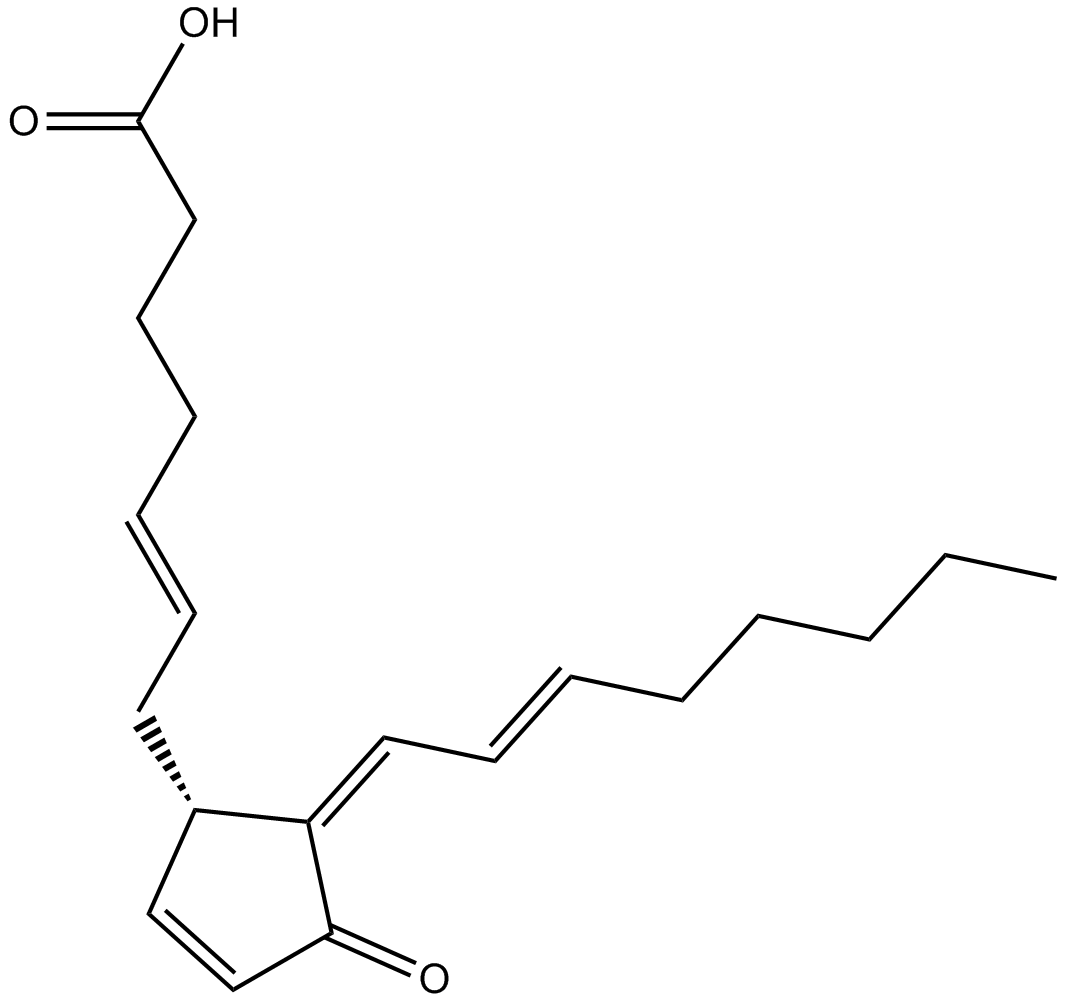 B7010 15-deoxy-Δ-12,14-Prostaglandin J2Target: PPARSummary: PPARγ agonist
B7010 15-deoxy-Δ-12,14-Prostaglandin J2Target: PPARSummary: PPARγ agonist -
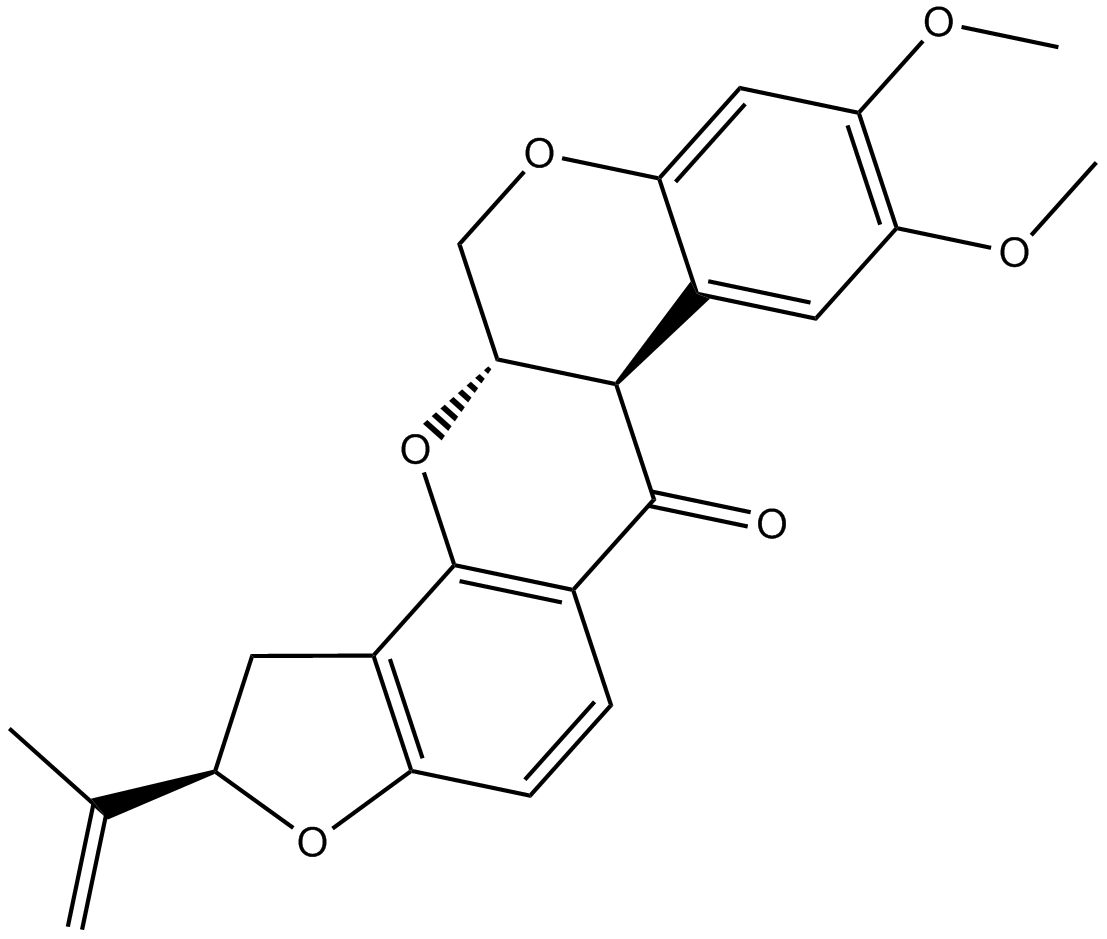 B5462 RotenoneTarget: complex I of the mitochondrial electron transport chainSummary: inhibitor of the mitochondrial complex I electron transport chain
B5462 RotenoneTarget: complex I of the mitochondrial electron transport chainSummary: inhibitor of the mitochondrial complex I electron transport chain

